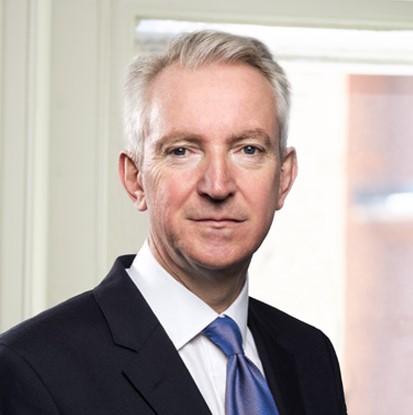 Our ‘Meet the Mediator’ feature continues with Stuart Chapman and will feature a different mediator in each issue. Here the mediators share suggestions on maximising potential for reaching a settlement (in their opinion), strategies or techniques they find useful in breaking a deadlock, a mediation they will always remember and why and some of the changes they have witnessed in the mediation landscape during their time practising in the field.
Our ‘Meet the Mediator’ feature continues with Stuart Chapman and will feature a different mediator in each issue. Here the mediators share suggestions on maximising potential for reaching a settlement (in their opinion), strategies or techniques they find useful in breaking a deadlock, a mediation they will always remember and why and some of the changes they have witnessed in the mediation landscape during their time practising in the field.
How does your background as a solicitor benefit your work as a mediator?
It makes me conscious of the difficulty that solicitors and barristers sometimes face in managing client relationships and especially in balancing loyalty to the client with advice to compromise.
What led you to move into mediation?
Professionally, I enjoy the complexity of factoring in the different emotional perspectives on the forensic analysis of a dispute, and the immediacy of the opportunity for resolution. That engages (when I’m having a good day) a number of different networks of the brain.
What type of cases have you been involved in as a mediator?
A much broader range than when I was a commercial litigator. From financial claims, shareholder and corporate disputes, commercial contracts and professional negligence claims, through to environmental class actions and inheritance claims. Anything I’m invited to help with.
What are one or two of the mediator techniques or strategies which you find particularly useful in breaking a deadlock?
The key strategy is to try to anticipate deadlock, so preparation around not only the issues, but also the perspectives and attitudes of the people involved, is important, so that when deadlock happens, it is easier to break, whether by bringing a couple of people together, making a mediator suggestion or even adjourning the mediation.
Disputes can often be quite complex and multifaceted. To what extent do the various elements – such as industry, size of company, jurisdiction of conflict, etc – play a role in your approach?
Always. The context within which people are going to have to make difficult decisions is essential to understand if one is going to be helpful, whether by broadening consideration of important commercial or personal factors, or of the risks, costs and benefits involved in litigating. For example, in some industries, at certain times, the opportunity cost of tying up important employees can seriously undermine the economic advantage of succeeding in a claim.
Is there a mediation that you will always remember? What difficulties or examples of excellence did it possess and how did you learn from these?
I mediated a dispute in Istanbul between Russians and Iranians. A cargo of oil had mysteriously vanished, the ship having been arrested pursuant to an Iranian court order in an unrelated case. It was alleged that the Iranian authorities were involved. The cultural differences between the people involved in the mediation were stark: one side anticipated a session in which their explanations would be listened to seriously, with patience and respect, and the other anticipated only a full confession as to the whereabouts of the oil, with no “stories”.
I learned two things: one was that truth is not as important in some cultures as respect. The other was that mediation is sometimes just one move, or passage of play, in a larger strategic battle.
Do you have any tips or suggestions for participants on how to maximise the potential for reaching a successful settlement?
I would say prepare thoroughly on two aspects. First, on your option pricing – where would an offer sit on your scale of “net financial outcomes”. Second, on the people on the other side, and how you might influence them. Don’t underestimate the power of respect.
What’s the best part of your job?
That moment when I understand why people are at odds, whether that is merely self-interest, other emotions or genuine differences in understanding. Then the process of building a common understanding as to what matters so that people can make informed and realistic decisions about how far to compromise.
What changes have you seen in the field in the time you’ve been practising as a mediator? Have these changed how you mediate?
It seems that more lawyers in the process have more experience of mediation than when I started in 2008. This has led me to try to make more use of that experience, for example when discussing process ideas, and also in being more direct more often in inviting people to be realistic.
When you are not mediating what do you like to do?
Aside from spending time with family and friends, and walking the dog, I try to keep fit, by cycling (I am currently training for a ride across Europe) and veterans’ indoor rowing competitions around the world. I enjoy wandering around, anywhere in the world, cinema and books about all sorts of topics that usually feed into mediation. I dabble in sailing and skiing. And video-conferencing technology.